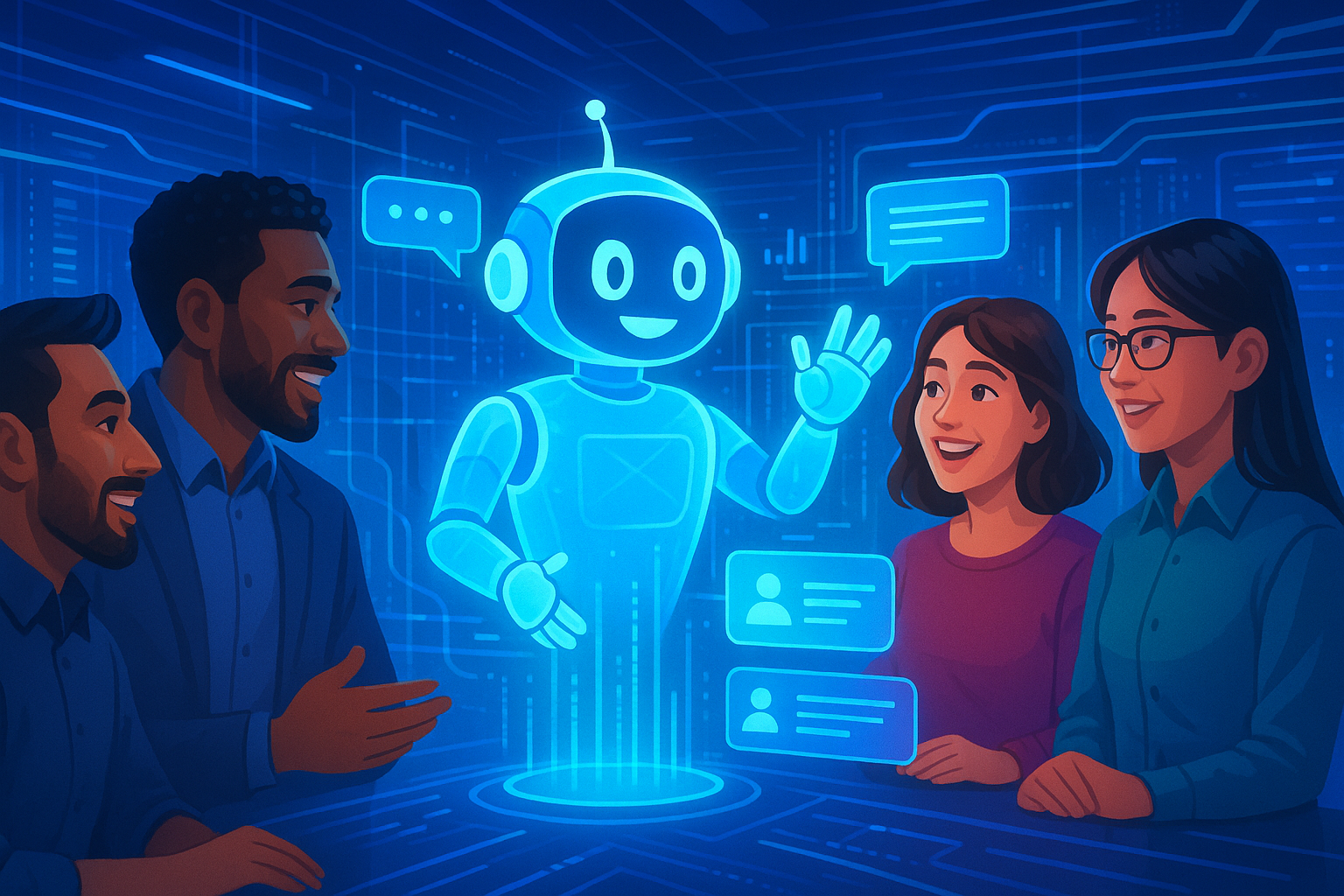How AI Chatbots Drive Hyper-Personalized Customer Engagement

Introduction
In today’s fast-paced digital landscape, businesses are increasingly recognizing the power of hyper-personalization in enhancing customer engagement strategies. At the heart of this transformation are AI-driven chatbots, revolutionizing the way brands communicate with their customers. By delivering tailored, real-time experiences, these chatbots significantly drive conversions and foster long-lasting relationships. Let’s explore how AI chatbots are transforming customer interactions through hyper-personalization, backed by real-world examples and the latest technologies.
The Power of AI Chatbots in Crafting Personalized Experiences
AI-powered chatbots have come a long way in terms of their capabilities. They harness advanced machine learning algorithms, natural language processing (NLP), and predictive analytics to interpret user intent, sentiment, and context in real-time.
These systems are designed to analyze a plethora of data—ranging from customer profiles and browsing behavior to purchase history—allowing them to customize responses effectively. One of the standout features of AI chatbots is their ability to provide proactive engagement. For example, they can send personalized recommendations or reminders based on specific user actions like anniversaries or previous purchases.
Moreover, as customer preferences evolve, the chatbots continuously update their algorithms through adaptive learning, ensuring that the level of personalization becomes fine-tuned over time. To further enhance engagement, feedback loops are integrated, allowing chatbots to solicit user input, which is then analyzed to better cater to the audience's needs.
And let’s not forget the exciting touch of gamification; chatbots can offer tailored incentives or rewards, capturing user interest and boosting interaction rates effectively.
New Technologies Paving the Way for Hyper-Personalization
Several cutting-edge technologies are fueling the rise of hyper-personalization in customer engagement:
- Real-time data analytics: AI’s ability to instantly analyze colossal amounts of data allows for immediate adjustments to user experiences, making interactions relevant and timely.
- Customer Data Platforms (CDPs): Solutions like Blueshift and BlueConic aggregate data points from multiple sources, enabling a coordinated and responsive approach to personalized marketing efforts.
- Predictive analytics: Algorithms that foresee customer needs enable brands to provide recommendations before they even ask. This proactive stance results in more meaningful interactions and an elevated user experience.
- Advancements in NLP: Improved natural language understanding empowers chatbots to offer more emotionally resonant and context-aware conversations, drawing users closer to genuine engagement.
Demonstrating the Impact of Hyper-Personalization
The results of incorporating AI-driven hyper-personalization strategies are striking. Businesses that adopt these technologies witness remarkable improvements in several key metrics:
| Metric | Impact |
|------------------------------------------|--------------------|
| Customer engagement | ↑ 45% |
| Retention rates | ↑ 25% |
| Revenue increase via personalization | ↑ up to 15% |
| Personalized experiences drive revenue | ↑ up to 40% for retailers |
| Increased engagement through AI marketing | ↑ 50% |
| Consumer preference for personalization | 80% more likely to buy from personalizing brands |
Real-World Examples:
- Companies like Blueshift and BlueConic leverage AI-enabled CDPs for automated, cross-channel personalization, yielding significant gains in revenue and customer loyalty.
- E-commerce platforms that employ AI for product recommendations see conversion rates soar, creating delightful "wow" moments for consumers.
- In sectors like healthcare and banking, AI personalizes treatment plans and financial products, leading to better outcomes and heightened customer satisfaction.
Navigating Challenges and Implementing Best Practices
Despite the clear advantages, there are challenges associated with implementing AI-driven hyper-personalization.
- Data Privacy & Security: As businesses collect and process personal data to enhance experiences, they must navigate privacy regulations like GDPR and practice robust data protection measures.
- Technical Integration: Merging AI tools with existing systems while ensuring a smooth flow of real-time data can pose technical hurdles.
- Customer Trust: Striking the right balance in personalization is crucial; excessive personalization can come off as intrusive if transparency and customer consent aren’t prioritized.
Best Practices to Follow:
- Adopt transparent data practices and seek explicit user consent for gathering and using personal information.
- Invest in secure, scalable AI tools that allow for flexibility as business needs and regulations evolve.
- Regularly assess and update AI models to mitigate bias and ensure they remain relevant, thereby meeting customer expectations and privacy standards.
- Foster a culture of feedback by using chatbot interactions to continually gather insights and improve offerings iteratively.
Looking Ahead: The Future of AI in Customer Engagement
As we move towards 2025, experts forecast that AI will manage up to 95% of customer interactions, covering both voice and text channels. Hyper-personalization will become the gold standard in customer engagement, with businesses required to offer real-time, predictive, and cross-channel experiences just to stay competitive. With the ongoing advancements in AI technology, personalized experiences will evolve to be even more nuanced, ensuring deeper customer connections and sustainable growth.
Conclusion
For business leaders, prioritizing AI-driven hyper-personalization in engagement strategies is no longer an option; it’s a necessity. Start small by piloting chatbot technologies in areas with the highest impact and scaling based on results. Additionally, continuous investment in AI and data privacy will be crucial to meet rising consumer expectations and regulatory demands. At Untap, we stand ready to assist you in harnessing the full potential of intelligent chatbots to elevate your customer engagement, enhance conversions, and transform your business landscape.